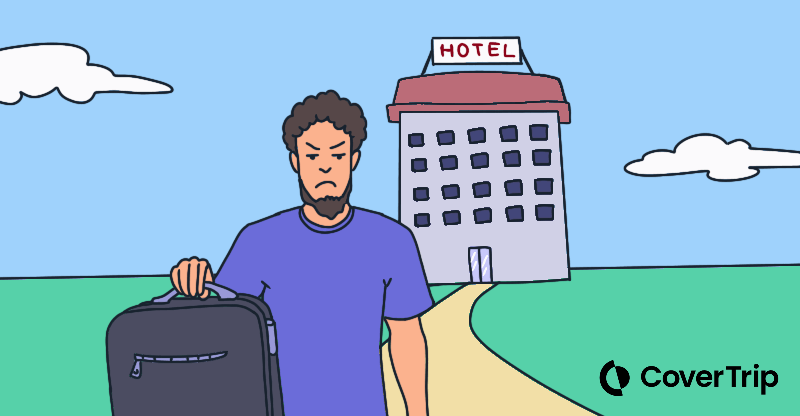How to Avoid Hotel Junk Fees
27 July 2024
Last month, the US House of Representatives passed the No Hidden Fees Act, which targets what the travel industry widely calls ‘junk fees.’
It reads:
“This bill requires providers of short-term lodging (e.g., hotels, motels, inns, and short-term rentals) to include each mandatory fee when displaying or advertising the price for a reservation.”
It means that the price you see advertised should be the price you pay if and when it is finally passed into law.
Let’s see what this could mean for your upcoming trips.

A fee by any other name
Travelers have been loudly frustrated about resort fees, up to the point of filing lawsuits. It makes sense too. In the past, resort fees were charged to justify luxury amenities, but now hotels tack them on to rooms that aren’t luxury or resort-like at all. When the fee is required, and you didn’t use the fitness classes or bike rentals, it feels like a rip-off.
One travel marketing company conducted a survey in 2023 to tease out traveler sentiments around hidden fees. They found these caused the most negative reactions:
- Online booking fees
- Wi-Fi fees
- Parking fees
Hotels paid attention too, but apparently, instead of killing the fees, they repackaged them and let drip pricing continue to hide them.
Here are just a few of the hidden fees that increase the price of a hotel room:
- resort fees – now sometimes labeled destination charge
- parking fees
- wi-fi access fees
- gym access fees
- business center fees
- pool access fees
- online booking fees
- early check-in fees
- host fees
- service fees
- additional person fees
- top floor charges (seriously, what?)
- check out fees (when you use the front desk)
By repackaging junk fees, hotels can advertise lower room prices to attract consumers, only to hit them with the real price when they reserve the room or receive their bill. That’s why the cost of a hotel room increases far more than the local lodging tax rate at check-out.
And we’re not in the clear yet because the US bill hasn’t passed.
Pro tip: The European Union already requires lodging businesses to disclose the total cost, including taxes and additional charges.
California Jumped Ahead
It’s hard to say with the federal law waiting to be acted upon; however, some are predicting an initial jump in hotel prices to include all the formerly hidden fees.
California lawmakers weren’t in the mood to wait for the feds to act and they implemented legislation known as SB 644, which requires hotel and rental properties to include mandatory fees in their initial advertised prices.
Beginning July 1, consumers of California lodging have 24 hours to cancel most bookings for free as long as the booking was made at least 72 hours before arrival. The law includes hotels, rental agencies, and third-party booking services. If you discover unexpected fees are added to your reservation, you have the option to cancel for free – at least in California.
How to spot hidden fees
If you want to avoid hidden fees, here’s how to do it.
1. Don’t book online
This isn’t just because you want to skip a potential online booking fee, but also so that you can establish a connection with a person on the other end of the line.
When you find a price you like online, call the hotel directly.
Let the representative know you found a price online and would like to book, but you want to know what fees will be charged. If you’re a loyalty member, be sure to mention that too.
- Depending on who you’ll be traveling with, ask if there are any fees for an additional person in the room.
- If you’re driving, ask if there is a parking fee or not.
- Ask if there are fees for using the pool, gym, or Wi-Fi.
- Find out if there is an automatic housekeeping gratuity too (yep, this happens).
Essentially, knowing up front will make all the difference before you make a reservation. You may be able to find this information by hunting around in the hotel’s policy pages, but who has time for that?
2. Ask about fees before you request an early check-in or late check-out
Some hotels will charge a fee, and others won’t. It’s best to ask if there will be a fee before you request a different time.
3. Don’t assume snacks left out are free
You already know the items in the mini-bar are pricey, and the door has a sensor. Watch out for those complimentary-looking bottles of water and baskets of snacks. Even if there’s no price tag on them, they may not be free. Just ask, “Is there a charge for this?”
4. Ask about fees before you request room service
The cost of room service can vary depending on the hotel and may include a tray charge, delivery charge, and even an automatic gratuity. If you want to order room service and don’t want to be surprised later, be sure to ask what fees will apply.
5. Join the loyalty program
Some brands’ loyalty programs waive certain charges like resort fees, early check-in/late check-out fees, and Wi-Fi fees. It’s often worth it to join the loyalty program and then unsubscribe from their marketing messages.
6. Pay with a credit card
In paying with a credit card, you have a powerful tool for getting out of junk fees. It’s best to use this as a last resort, but if you’re charged a fee you don’t think you should pay, you can file a credit card chargeback.
Pro tip: Don’t pick up the phone in your room unless you are calling the front desk. Otherwise, you could see a charge for that call on your bill!
Check your bill before you leave
The only way to be sure you aren’t charged junk fees is to scrutinize your bill before you leave the hotel (or as soon as possible after).
If you’re charged a gym fee but didn’t use the facilities, ask that the charge be removed.
Related topics:
Damian Tysdal is the founder of CoverTrip, and is a licensed agent for travel insurance (MA 1883287). He believes travel insurance should be easier to understand, and started the first travel insurance blog in 2006.
